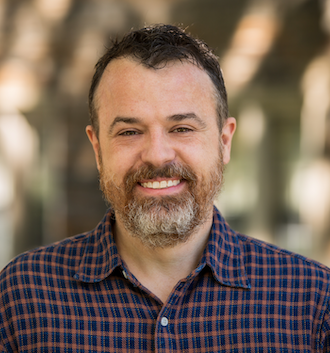Longitudinal Data Analysis Using Stata - Online Course
A 4-Day Livestream Seminar Taught by
Stephen VaiseyTuesday, June 11 –
Friday, June 14, 2024
10:30am-12:30pm (convert to your local time)
1:30pm-3:00pm
The most common type of longitudinal data is panel data or repeated measures data, consisting of measurements of predictor and response variables at two or more points in time for many individuals (or other units). Panel data enable two major advances over cross-sectional data:
-
- the ability to model the evolution of outcomes over time; and
- the ability to “control” for unobserved unit-specific heterogeneity, enabling better causal inferences.
Different data structures allow researchers to use panel data in different ways. In this course, we will focus on the following approaches:
-
- Mixed models (including latent growth curves)
- Two period difference-in-differences
- Fixed-effects models (one-way and two-way)
- Between-within models
- Dynamic panel models
In addition to considering these approaches and their implementation in Stata, we will discuss when each is (not) suitable given data constraints. We will also consider how to adapt these approaches to deal with limited dependent variables (especially binary outcomes).
Starting June 11, we are offering this seminar as a 4-day synchronous*, livestream workshop held via the free video-conferencing software Zoom. Each day will consist of two lecture sessions which include hands-on exercises, separated by a 1-hour break. You are encouraged to join the lecture live, but will have the opportunity to view the recorded session later in the day if you are unable to attend at the scheduled time.
*We understand that finding time to participate in livestream courses can be difficult. If you prefer, you may take all or part of the course asynchronously. The video recordings will be made available within 24 hours of each session and will be accessible for four weeks after the seminar, meaning that you will get all of the class content and discussions even if you cannot participate synchronously.
Closed captioning is available for all live and recorded sessions. Live captions can be translated to a variety of languages including Spanish, Korean, and Italian. For more information, click here.
Computing
The vast majority of what you will learn in this course can be applied in any software package. This seminar will use Stata 17 for empirical examples and exercises. (Nearly all commands will work in Stata 14-16 as well.) However, no previous experience with Stata is needed.
Basic familiarity with Stata is highly desirable, but even novice Stata users should be able to follow the presentation and do the exercises.
R notes and syntax are available upon request.
If you’d like to familiarize yourself with Stata basics before the seminar begins, we recommend following along with a “getting started” video like the one here.
Seminar participants who are not yet ready to purchase Stata could take advantage of StataCorp’s free 30-day evaluation offer or their 30-day software return policy
The vast majority of what you will learn in this course can be applied in any software package. This seminar will use Stata 17 for empirical examples and exercises. (Nearly all commands will work in Stata 14-16 as well.) However, no previous experience with Stata is needed.
Basic familiarity with Stata is highly desirable, but even novice Stata users should be able to follow the presentation and do the exercises.
R notes and syntax are available upon request.
If you’d like to familiarize yourself with Stata basics before the seminar begins, we recommend following along with a “getting started” video like the one here.
Seminar participants who are not yet ready to purchase Stata could take advantage of StataCorp’s free 30-day evaluation offer or their 30-day software return policy
Who should register?
This course is for anyone who wants to learn to analyze repeated measures panel data. You should have a basic foundation in linear regression.
This course is for anyone who wants to learn to analyze repeated measures panel data. You should have a basic foundation in linear regression.
Seminar outline
-
- What is panel data?
- Long form and wide form
- Within and between variation
- Mixed models (growth curves) for time-constant treatments
- Introduction to fixed effects (“within” estimation)
- Pre-test/post-test designs
- Two-period difference-in-differences
- Two-way fixed effects
- Between-within models for time-varying treatments
- Introduction to linear structural equations for panel data
- Introduction to dynamic panel models
-
- What is panel data?
- Long form and wide form
- Within and between variation
- Mixed models (growth curves) for time-constant treatments
- Introduction to fixed effects (“within” estimation)
- Pre-test/post-test designs
- Two-period difference-in-differences
- Two-way fixed effects
- Between-within models for time-varying treatments
- Introduction to linear structural equations for panel data
- Introduction to dynamic panel models
Payment information
The fee of $995 includes all course materials.
PayPal and all major credit cards are accepted.
Our Tax ID number is 26-4576270.
The fee of $995 includes all course materials.
PayPal and all major credit cards are accepted.
Our Tax ID number is 26-4576270.

